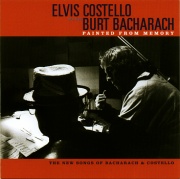Montreal Devoir, October 31, 1998: Difference between revisions
(create page for Le Devoir review of Painted From Memory) |
(formatting) |
||
| (8 intermediate revisions by 2 users not shown) | |||
| Line 1: | Line 1: | ||
{{Bibliography header}} | {{Bibliography header}} | ||
{{:Bibliography index}} | {{:Bibliography index}} | ||
{{: | {{:Montreal Devoir index}} | ||
{{: | {{:Canada publications index}} | ||
{{Bibliography article header}} | {{Bibliography article header}} | ||
<center><h3> Painted from Memory </h3></center> | <center><h3> Painted from Memory </h3></center> | ||
<center>'''Elvis Costello With Burt Bacharach | <center>'''Elvis Costello With Burt Bacharach </center> | ||
---- | |||
{{GT | link = https://translate.google.com/translate?sl=fr&tl=en&js=y&prev=_t&hl=en&ie=UTF-8&u=http%3A%2F%2Fwww.elviscostello.info%2Fwiki%2Findex.php%2FMontreal_Devoir%2C_October_31%2C_1998&edit-text= }} | |||
<center> {{mm}} ''Le Devoir </center> | |||
---- | ---- | ||
{{Bibliography text}} | {{Bibliography text}} | ||
La presse rock britannique a beau s'agenouiller et baiser le plancher du vénérable studio de Hollywood où se tint la rencontre inespérée entre le | La presse rock britannique a beau s'agenouiller et baiser le plancher du vénérable studio de Hollywood où se tint la rencontre inespérée entre le "king of bachelor-pad music" et le "prince of new wave" (dixit le journaliste en émoi du ''Mojo'' d'octobre), il résulte plutôt ceci de l'acoquinage tant attendu de Burt Bacharach et Elvis Costello: un gros paquet de chansons trop volontairement sophistiquées pour être vraiment mémorables. | ||
C'est le Costello et le Bacharach de maintenant qui tentent de faire du Burt Bacharach- | C'était couru: Bacharach et Costello furent tous deux en leur temps des as de la mélodie recherchée avec des tas d'accords diminués et augmentés. Fatalement, les airs communs ne sont pas exactement simplistes. D'entrée de jeu, aux premières mesures d' "In The Darkest Place," on constate: c'est emberlificoté. | ||
C'est le Costello et le Bacharach de maintenant qui tentent de faire du Burt Bacharach-Hal David millésimé 1964. Et qui échouent. Pas lamentablement: il y a trop de talent en jeu. Le disque est émaillé de quasi réussites, notamment la délicate bossa "Toledo." Mais les tournures mélodiques sont constamment forcées, pas du tout naturellement heureuses comme l'étaient les San Jose, "Anyone Who Had A Heart" et autres "Alfie" de l'âge d'or, qui bénéficiaient en plus d'interprétations lumineuses des Cilla Black, Dusty Springfield et Dionne Warwick. Si Costello n'a jamais mieux chanté, il n'a certainement pas le registre de la matante à Whitney Houston (Warwick), et assure comme il peut les vertigineux creux et saillies des gammes de Bacharach. À la fin, on a un peu mal au coeur. À porter au dossier des curiosités historiques. | |||
{{cx}} | {{cx}} | ||
| Line 19: | Line 24: | ||
'''Le Devoir, October 31, 1998 | '''Le Devoir, October 31, 1998 | ||
---- | ---- | ||
Le Devoir reviews [[Painted From Memory]] | ''Le Devoir'' reviews ''[[Painted From Memory]]''. | ||
{{Bibliography | {{Bibliography images}} | ||
[[image:Painted From Memory album cover.jpg|180px|border|link=Painted From Memory]] | |||
{{Bibliography notes footer}} | {{Bibliography notes footer}} | ||
{{Bibliography footer}} | {{Bibliography footer}} | ||
==External links== | ==External links== | ||
*[http://www.ledevoir.com/ LeDevoir.com] | *[http://www.ledevoir.com/ LeDevoir.com] | ||
*[http://en.wikipedia.org/wiki/Le_Devoir Wikipedia: Le Devoir] | *[http://en.wikipedia.org/wiki/Le_Devoir Wikipedia: Le Devoir] | ||
{{DEFAULTSORT:Devoir 1998-10-31}} | {{DEFAULTSORT:Montreal Devoir 1998-10-31}} | ||
[[Category:Bibliography]] | [[Category:Bibliography]] | ||
[[Category:Bibliography 1998]] | [[Category:Bibliography 1998]] | ||
[[Category: | [[Category:Montreal Devoir| Montreal Devoir 1998-10-31]] | ||
[[Category:Français]] | [[Category:Français]] | ||
[[Category:Newspaper articles]] | [[Category:Newspaper articles]] | ||
[[Category:Painted From Memory reviews | [[Category:Album reviews]] | ||
[[Category:Painted From Memory reviews]] | |||
Latest revision as of 13:25, 10 October 2020
|
